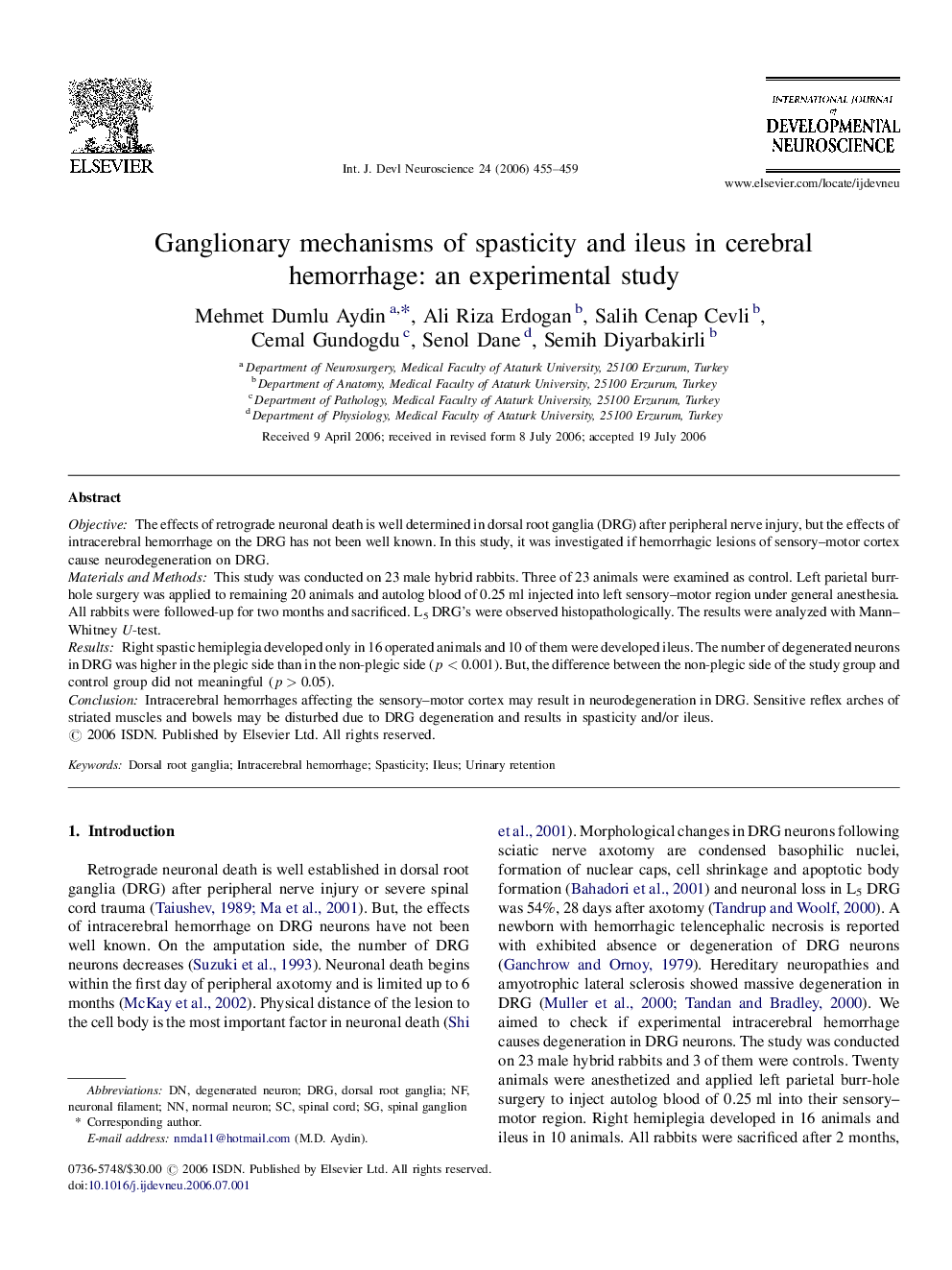| Article ID | Journal | Published Year | Pages | File Type |
|---|---|---|---|---|
| 2786923 | International Journal of Developmental Neuroscience | 2006 | 5 Pages |
ObjectiveThe effects of retrograde neuronal death is well determined in dorsal root ganglia (DRG) after peripheral nerve injury, but the effects of intracerebral hemorrhage on the DRG has not been well known. In this study, it was investigated if hemorrhagic lesions of sensory–motor cortex cause neurodegeneration on DRG.Materials and MethodsThis study was conducted on 23 male hybrid rabbits. Three of 23 animals were examined as control. Left parietal burr-hole surgery was applied to remaining 20 animals and autolog blood of 0.25 ml injected into left sensory–motor region under general anesthesia. All rabbits were followed-up for two months and sacrificed. L5 DRG's were observed histopathologically. The results were analyzed with Mann–Whitney U-test.ResultsRight spastic hemiplegia developed only in 16 operated animals and 10 of them were developed ileus. The number of degenerated neurons in DRG was higher in the plegic side than in the non-plegic side (p < 0.001). But, the difference between the non-plegic side of the study group and control group did not meaningful (p > 0.05).ConclusionIntracerebral hemorrhages affecting the sensory–motor cortex may result in neurodegeneration in DRG. Sensitive reflex arches of striated muscles and bowels may be disturbed due to DRG degeneration and results in spasticity and/or ileus.
